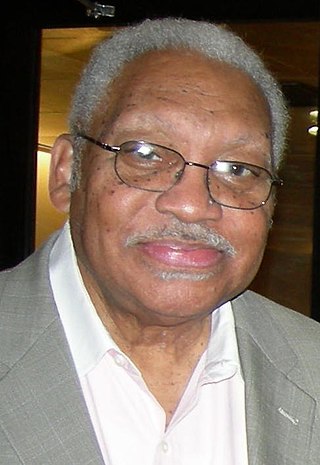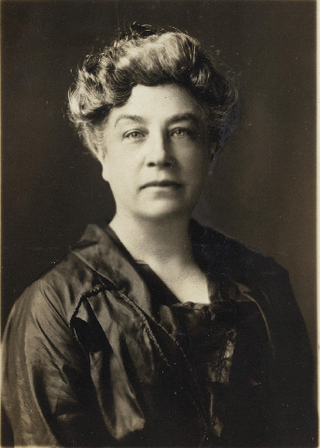Related Research Articles

The Nineteenth Amendment to the United States Constitution prohibits the United States and its states from denying the right to vote to citizens of the United States on the basis of sex, in effect recognizing the right of women to vote. The amendment was the culmination of a decades-long movement for women's suffrage in the United States, at both the state and national levels, and was part of the worldwide movement towards women's suffrage and part of the wider women's rights movement. The first women's suffrage amendment was introduced in Congress in 1878. However, a suffrage amendment did not pass the House of Representatives until May 21, 1919, which was quickly followed by the Senate, on June 4, 1919. It was then submitted to the states for ratification, achieving the requisite 36 ratifications to secure adoption, and thereby go into effect, on August 18, 1920. The Nineteenth Amendment's adoption was certified on August 26, 1920.

New Orleans is a consolidated city-parish located along the Mississippi River in the southeastern region of the U.S. state of Louisiana. With a population of 383,997 according to the 2020 U.S. census, it is the most populous city in Louisiana and the French Louisiana region; third most populous city in the Deep South; and the twelfth-most populous city in the southeastern United States. Serving as a major port, New Orleans is considered an economic and commercial hub for the broader Gulf Coast region of the United States.

The Equal Rights Amendment (ERA) is a proposed amendment to the U.S. Constitution that would, if added, explicitly prohibit sex discrimination. It was written by Alice Paul and Crystal Eastman and introduced in Congress in December 1923 as a proposed amendment to the United States Constitution. The purpose of the ERA is to guarantee equal legal rights for all American citizens regardless of sex. Proponents assert it would end legal distinctions between men and women in matters of divorce, property, employment, and other matters. Opponents originally argued it would remove protections that women needed. In the 21st century opponents argue it is no longer needed and some fear it would protect abortion and transgender rights.

The Caesars Superdome, commonly known as the Superdome, is a domed multi-purpose stadium located in the Central Business District of New Orleans, Louisiana. It is the home stadium of the New Orleans Saints of the National Football League (NFL).

The University of New Orleans (UNO) is a public research university in New Orleans, Louisiana. First opened in 1958 as Louisiana State University in New Orleans, it is the largest public university and one of two doctoral research universities in the Greater New Orleans region. UNO is a member of the University of Louisiana System and is classified among "R2: Doctoral Universities – High research activity". The university consists of 8 schools and colleges offering 40 bachelor's, 45 master's and 17 doctoral degrees. Among its academic offerings are the only civil, mechanical and electrical engineering programs in New Orleans, the only graduate hospitality and tourism program and PAB-accredited urban planning program in the state of Louisiana, and one of the only schools of naval architecture and engineering in the United States.

Marie Corinne Morrison Claiborne Boggs was a politician who served as a member of the U.S. House of Representatives and later as United States Ambassador to the Holy See. She was the first woman elected to Congress from Louisiana. She was also a permanent chairwoman of the 1976 Democratic National Convention, which met in New York City to nominate the Carter-Mondale ticket. She was the first woman to preside over a major party convention.

The second line is a tradition in parades organized by Social Aid and Pleasure Clubs (SAPCs) with brass band parades in New Orleans, Louisiana, United States. The "main line" or "first line" is the main section of the parade, or the members of the SAPC with the parading permit as well as the brass band. The second line consists of people who follow the band to enjoy the music, dance, and engage in community. The second line's style of traditional dance, in which participants dance and walk along with the SAPCs in a free-form style with parasols and handkerchiefs, is called "second-lining". It is one of the most foundationally Black American–retentive cultures in the United States. It has been called "the quintessential New Orleans art form – a jazz funeral without a body". Another significant difference from jazz funerals is that second line parades lack the slow hymns and dirges played at funerals.

H. Sophie Newcomb Memorial College, or Newcomb College, was the coordinate women's college of Tulane University located in New Orleans, in the U.S. state of Louisiana. It was founded by Josephine Louise Newcomb in 1886 in memory of her daughter.

Ellis Louis Marsalis Jr. was an American jazz pianist and educator. Active since the late 1940s, Marsalis came to greater attention in the 1980s and 1990s as the patriarch of the musical Marsalis family, when sons Branford and Wynton became popular jazz musicians.
WWNO is a public, non-commercial radio station in New Orleans, Louisiana. It is owned by the University of New Orleans, offering a news and information radio format with some jazz programs on weekends. Studios and offices are located on the fourth floor of the UNO library. The transmitter is off Behrman Highway in the Algiers neighborhood of New Orleans.

A jazz funeral is a funeral procession accompanied by a brass band, in the tradition of New Orleans, Louisiana.

The culture of New Orleans is unique among, and distinct from, that of other cities in the United States, including other Southern cities. New Orleans has been called the "northernmost Caribbean city" and "perhaps the most hedonistic city in the United States". Over the years, New Orleans has had a dominant influence on American and global culture.

New Orleans is home to a wide variety of sporting events. Most notable are the home games of the New Orleans Saints (NFL) and the New Orleans Pelicans (NBA), the annual Sugar Bowl, the annual Zurich Classic and horse racing at the Fair Grounds Race Course. New Orleans has also occasionally hosted the Super Bowl, College Football Playoff semifinal game and the NCAA college basketball Final Four.
KNSU is a campus radio station licensed to Nicholls State University in Thibodaux, Louisiana. The station mainly programs alternative rock aimed at a college aged crowd, however the station also plays hip hop music on shows aired on the station. The station also broadcasts Nicholls Colonels athletic events. It is part of the Colonel Media Group, the overarching organization for NSU student media.

Terry O'Neill is an American feminist, civil rights attorney, and professor. She was the president of the National Organization for Women (NOW) from 2009 to 2017, as well as president of the NOW Foundation and chair of the NOW Political Action Committees.

Kate M. Gordon was an American suffragist, civic leader, and one of the leading advocates of women's voting rights in the Southern United States. Gordon was the organizer of the Southern States Woman Suffrage Conference and directed the 1918 campaign for woman suffrage in the state of Louisiana, the first such statewide effort in the American South.

The Historic Cemeteries of New Orleans, New Orleans, United States, are a group of forty-two cemeteries that are historically and culturally significant. These are distinct from most cemeteries commonly located in the United States in that they are an amalgam of the French, Spanish, and Caribbean historical influences on the city of New Orleans in addition to limitations resulting from the city's high water table. The cemeteries reflect the ethnic, religious, and socio-economic heritages of the city. Architecturally, they are predominantly above ground tombs, family tombs, civic association tombs, and wall vaults, often in neo-classical design and laid out in regular patterns similar to city streets. They are at times referred to colloquially as “Cities of the Dead”, and some of the historic cemeteries are tourist destinations.

Ida Weis Friend (1868-1963) was a suffragist, philanthropist and lifelong advocate for progressive causes in New Orleans. In 1920, she became the first woman from Louisiana to serve as a delegate to the Democratic National Convention.

The Hogan Archive of New Orleans Music and New Orleans Jazz is an academic repository located at Tulane University in New Orleans, Louisiana. The archive specializes in Dixieland Jazz, gospel, blues, rhythm and blues, Creole songs, and related musical genres. Its collection includes oral histories, audio and video recordings, photos and other images, sheet music, personal papers, and teaching aids.
References
- 1 2 "Newcomb College ERA Jazz Funeral, 1982 | Tulane University Digital Library". digitallibrary.tulane.edu. Retrieved 2021-12-14.
- 1 2 3 4 5 6 7 "The Women Who Fought For And Against The ERA: Part II". WWNO. Retrieved 2021-12-14.
- 1 2 3 "Louisiana could make history if it finally passes the ERA". NOLA.com. Retrieved 2021-12-14.
- ↑ "National Museum of Funeral History | Jazz Funerals of New Orleans". www.nmfh.org. Retrieved 2021-12-14.
- ↑ "ERA is given jazz funeral". El Paso Times. July 4, 1982. Retrieved 2021-12-14.
- 1 2 3 4 5 6 Allured, Janet (2016-11-01). Remapping Second-Wave Feminism: The Long Women's Rights Movement in Louisiana, 1950–1997. University of Georgia Press. ISBN 978-0-8203-5004-2.
- 1 2 3 "ERA: Dead but not yet buried". The Daily Advertiser. July 4, 1982. Retrieved 2021-12-14.
- ↑ "Jazz Funeral for ERA Held in N.O." The Town Talk. July 4, 1982. Retrieved 2021-12-14.
- 1 2 "Jazz Funeral Memorializes ERA". Newspapers.com. July 5, 1982. Retrieved 2021-12-14.
- ↑ "Jazz Funeral for ERA". The Times. June 22, 1982. Retrieved 2021-12-14.
- 1 2 3 4 "Jazz funeral buries ERA". Daily World. July 5, 1982. Retrieved 2021-12-14.
- ↑ "The Women Who Fought For And Against The ERA: Part I". WWNO. Retrieved 2021-12-14.
- ↑ "Rallies planned as ERA ratification battle ends". Rock Island Argus. June 30, 1982. Retrieved 2021-12-14.
- ↑ "Jazz Buries ERA, Hints at Rebirth". Bellingham Herald. July 4, 1982. Retrieved 2021-12-14.